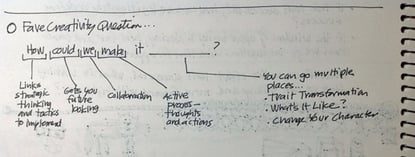I was on the client side much longer than I’ve been on the provider side in business. As a client, I tried to conduct our strategic relationships with the outside partners we worked with in a productive, mutually-beneficial way. My performance wasn’t perfect; we all have moments when we want to take the highest road possible yet something detours us toward some other road instead.
Nevertheless, I've been surprised through our experience and in talking with other providers how rarely some of the basics happen for creating productive strategic relationships between clients and outside providers.
9 Principles for Great Strategic Relationships when You're the Client
If you're on the client side, consider how well you’re addressing these principles to improve strategic relationships and the value you receive from your outside partners:
- If you've reached out to someone for information and they send it to you, you owe some type of response. Communication is a two-way deal so hold up your end of the deal.
- If you've requested a proposal from someone, don't dodge their phone calls or emails. A proposal doesn't appear by magic. It took time and effort to develop, and it reflects poorly if you don't have the decency to engage in a conversation about it.
- If a potential opportunity is speculative, that's fine. Let the other party know that, and they can go into it - if they choose - with a full understanding of how improbable it may be.
- Here are several situations where the truth is more important than a B.S. story you concoct and try to pass off as the truth:
- Priorities have changed and what was really hot, now suddenly isn't.
- You jumped the gun in requesting a proposal, and now it's going to take some time to get to a resolution.
- You simply can't get an answer on where something stands right now, but you are trying.
- You chose another organization to handle the project and you can provide some insights into why you made the selection you did.
- An outside vendor isn't an adversary. You should be working together. If you tend to wind up in adversarial relationships with vendors, you have some soul searching to do.
- You're not required to spare your vendors from the craziness that surrounds your work life. Ideally, they should be able to help reduce the craziness. But if you want to be well-respected as a client, don't unleash the craziness that NOBODY can fix on your vendors simply for the hell of it. Misery may love company, but if you indiscriminately create misery for vendors, nobody is going to love your company.
- The bigger the gap between how big your company is and how small your outside provider is, the more you can be a hero by treating the outside provider like people (or a person) and not like a company. Again, you don't have to, but it's a great way to build loyal, incredibly beneficial relationships.
- As a client, you definitely get to complain about things, if that's the way you choose to do business. Be careful, though. If you complain a lot and most of the complaints aren't justifiable, you may reach the magic complaint formula by accident. If you do, you might get fired as a client. Yes, that's possible.
- Don't claim you don't know how to work the accounts payable system at your company. If you have the authority to engage a project or manage a vendor relationship, you need to figure out how to help outsiders work through your payables process.
Lest you think these principles aren’t balanced, I’d invite you to revisit a more than seven year-old post (written when I was on the client side) about what it takes to form strategic relationships as a market research company. While some of the principles are specific to research, most are readily adaptable to other types of partners. Look for a more widely applicable update to that article soon! - Mike Brown





